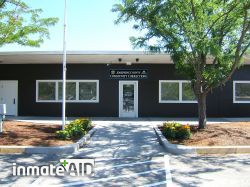FAQs
State probation and parole programs provide supervision and structured reintegration for individuals serving sentences outside of incarceration. Probation is an alternative to jail or prison, allowing individuals to serve their sentence in the community under supervision, while parole is the conditional release of an inmate from prison before completing their sentence, subject to compliance with strict terms. Both are managed by state agencies to ensure public safety and offender accountability.
Frequently Asked Questions
-
What is the difference between probation and parole?
Probation is a court-ordered alternative to incarceration, allowing an offender to serve their sentence in the community under supervision. Parole is the supervised release of an inmate from prison before the completion of their sentence, granted by a parole board based on good behavior and rehabilitation efforts. -
Who qualifies for state probation?
Probation is typically granted to individuals convicted of lower-level offenses who meet court-established eligibility criteria. Judges consider factors such as criminal history, the nature of the offense, and the likelihood of rehabilitation. -
Who determines if an inmate is granted parole?
A state parole board reviews an inmate’s conduct, rehabilitation progress, and risk to public safety before deciding whether to grant parole. Victim impact statements and recommendations from correctional officials may also influence the decision. -
What are the conditions of probation and parole?
Conditions vary but often include regular meetings with a supervising officer, employment or education requirements, travel restrictions, drug testing, community service, and avoiding further legal trouble. -
What happens if someone violates probation or parole?
Consequences depend on the severity of the violation. Minor infractions may result in warnings or increased supervision, while serious violations, such as committing a new crime, can lead to revocation and incarceration. -
Can someone on probation or parole leave the state?
Travel restrictions apply, and individuals must obtain prior approval from their supervising officer before leaving the state. Unauthorized travel may be considered a violation. -
Are probation and parole officers the same?
While their roles are similar, probation officers supervise individuals sentenced to community supervision instead of incarceration, while parole officers monitor individuals released from prison. Both enforce compliance with court or parole board conditions. -
Do probationers and parolees have to pay fees?
Yes, most states require probationers and parolees to pay supervision fees, which may cover drug testing, electronic monitoring, or rehabilitation programs. Fees vary by state and financial hardship exemptions may be available. -
Can probation or parole be shortened or terminated early?
Some individuals may qualify for early termination based on good behavior, compliance with conditions, and completion of required programs. Judges or parole boards determine eligibility. -
What types of rehabilitation programs are available for probationers and parolees?
Many states offer substance abuse treatment, mental health counseling, vocational training, job placement assistance, and educational programs to support successful reintegration. -
What is an intensive supervision program (ISP)?
Intensive Supervision Programs are stricter forms of probation or parole that require more frequent reporting, home visits, curfews, and electronic monitoring for high-risk individuals. -
Can someone on probation or parole vote?
Voting rights vary by state. Some states allow individuals on probation or parole to vote, while others restore voting rights only after completing all sentence terms, including supervision. -
Is electronic monitoring required for all probationers and parolees?
No, electronic monitoring is typically reserved for high-risk individuals or those under home detention, house arrest, or sex offender supervision. -
Can a probationer or parolee own a firearm?
In most states, individuals on probation or parole are prohibited from possessing firearms. Violating this restriction can result in revocation and additional criminal charges. -
What support services are available for parolees after release?
Many states provide reentry assistance, such as halfway houses, job training, housing support, and counseling services to help parolees transition successfully into society. -
How does a probation or parole officer monitor compliance?
Officers conduct regular check-ins, home visits, drug tests, and employment verification, and may use GPS monitoring or curfews to ensure individuals comply with supervision conditions.









